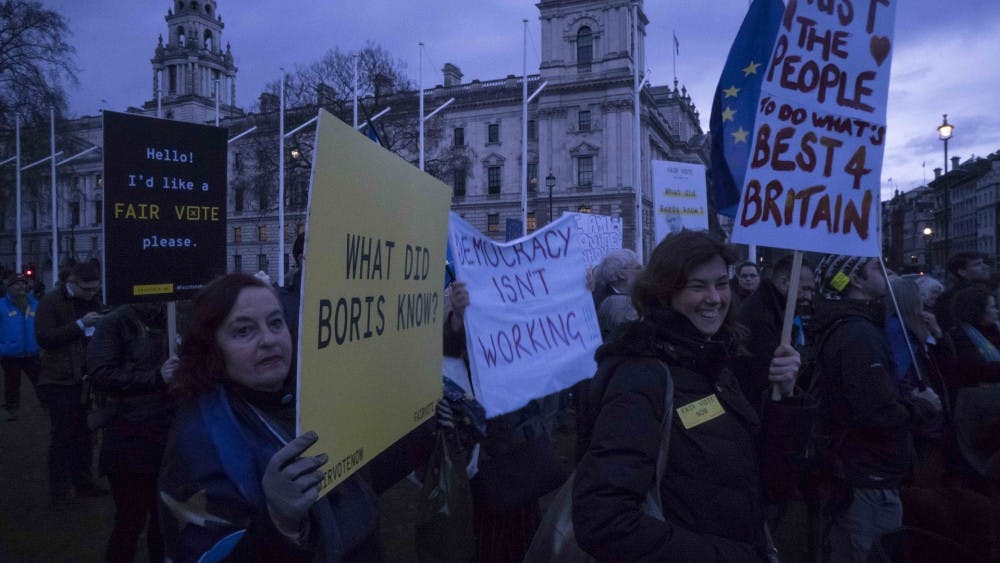It’s somewhat ironic that the stylish aesthetics of The Great Hack, Netflix’s recent documentary on the 2018 Facebook-Cambridge Analytica data scandal, are so indebted to the social media world it indicts. Throughout the film, its subjects walk through city streets bustling with digitally superimposed messages and posts hovering in the air.
One of the film’s main characters Brittany Kaiser, the former business developer director for Cambridge Analytica, is first introduced at the Burning Man Festival before lounging at a pool overlooking the Gulf of Thailand, perhaps the most perfect pair of Instagram-worthy locations one can find.
As portrayed in the film, her life seems to melt into a facsimile of the data her company collected, that is, before she blows it all up by becoming a whistleblower against her former employer and describes its essential role in influencing the 2016 presidential election.
As much as The Great Hack wants to be the documentary covering the 2018 Cambridge Analytica scandal, it is ultimately more concerned with the paranoia associated with data-hacking and the tangled drama of the company itself than it is with the democratic threats to which it pays lip service.
First, if you’re looking for the end-all-be-all dissection of Cambridge Analytica and the 2018 scandal’s importance to our democracy, then skim through this movie. While some research or longform articles could easily convey all the information, the movie does provide engaging visual aids that demonstrate how Cambridge Analytica accessed the voter information of millions of Americans through Facebook. Indeed, as a call to action, the first 30 minutes and the last 10 minutes of the film are sufficient enough to provide the viewer with a basic understanding of the issues surrounding this scandal.
The rest, however, deserves to be discarded, as it mainly concerns Brittany Kaiser’s reactions and personal revelations about the Cambridge Analytica scandal. Although the film momentarily insinuates that Kaiser’s whistleblowing activities might be self-serving, it is much too attached to her perspective to give those questions air.
Instead we are meant to experience her own shock at the realization that some of her most trusted friends, among them Alexander Nix and Steve Bannon, could have misled her as some of her own coworkers, regardless of the fact that she worked at Cambridge Analytica for three years.
We are also meant to be shocked, as Kaiser is, that her incriminating calendar of events is still completely saved on her computer. This is a fact which, given the legal ramifications of her company’s actions, seems either idiotic or intentional.
Kaiser’s cavalier attitude, false surprise over her company’s scandals and frequent anxiety about her relationship status with Cambridge Analytica’s founders, is hardly surprising. What is more surprising is that the film casts such an uncritical eye on her despite the breadth of her role in the scandal.
Ultimately, her role seems like a ploy to unnecessarily dramatize the Cambridge Analytica scandal by exploring the shattered friendships that resulted from its eruption.
The film spends so much time on these relationships that it raises questions about the filmmakers’ confidence in the material, as if the audience’s attention must be manipulated by having exotic locales and personal drama substitute for a deeper consideration of the scandal’s implications.
The Cambridge Analytica scandal is not important just because it affected individuals on a personal level. Today, almost everyone understands that they are individually affected by their own technology.
What matters more than the fact that Google owns your search history is the reality that these companies have the ability to shape the collective unconscious through targeted advertising and a variety of other coercive techniques.
If that’s not drama enough, then I don’t know what is, and this documentary doesn’t quite manage to express that sense of urgency.





